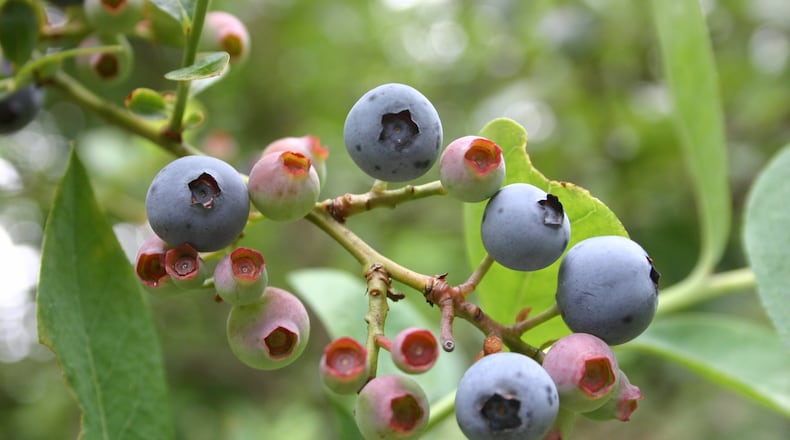Q: I inherited an overgrown blueberry patch ten years ago. I managed to clear it and they have borne a reasonable quantity of fruit each year. However, I lose a lot of fruit because the rows between the bushes have narrowed over the years.Tom Hobbs, email
A: If the blueberries have not been pruned regularly, thinning can be done to reduce their height and width. From each bush, remove one to three of the largest canes each winter at zero to 24 inches from ground level for a total of about twenty percent of the leaf canopy. Over a period of five years each plant will be totally renewed. New, more productive canes will sprout from the old canes. Shoots that come up from below ground in the rows between bushes can be transplanted or removed completely. In addition, excessively tall canes can be pruned back to six feet each winter.
Q: How can I make centipede grass plugs spread faster?Walter Lay, email
A:Centipede grass does not grow very rapidly. All warm-season grasses slow down in September, so nothing can be done now. Next year, in both early May and early July, apply fertilizer like 15-0-15 or 16-4-8 at a rate of six pounds per thousand square feet.
Q: I have a few acres that are in need of brush control. My issue is that I have a well close to the area and my land slopes down to a creek. Are there any herbicides that are safe to use?Sam Gris, Morgan County
A: Different herbicide products have different requirements for application near water. It depends on the active ingredient and other components that help the product work better. Several products that contain glyphosate (the active ingredient in Roundup) are labeled for use on ponds. Look online for pond herbicides and see if one of them would control the brush but not contaminate the water.
Q: We have a fenced backyard and have never had any problems with critters. This year we put down zoysia sod and something is digging it up.Barb Grove, email
A: I'd lay my money on raccoons. They have dexterous paws that are ideally suited for pulling up sod to look for earthworms and grubs. Consider securing the sod to keep it from being rolled up again. This is easy to do using chicken wire. Lay wire over the sod and anchor it down with "hairpins" made from wire clothes hangers. Be generous with the anchors: one every six inches along the edge of the chicken wire.
Q: Bees seem to be drunk and asleep when viewed on flowers. Can insecticides cause this?Brad Norman, email
A: More than likely, the bees are sleeping! Bees of all kinds are well-known to rest on flowers, particularly near dusk or when it’s chilly. I see them on my backyard sedum plants. Some entomologists theorize that most of the resting bees are males who have no hive to return to at night.
About the Author
The Latest
Featured

